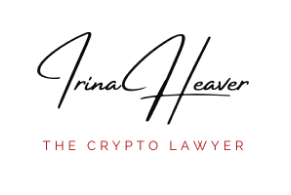Token Issuance: Top 7 Legal Must-Knows for Founders
As a Web3 founder gearing up for token issuance of your project, you’re undoubtedly managing a complex array of tasks spanning technical development, commercial strategy, and community engagement. Yet, an area that consistently poses significant challenges is the legal landscape surrounding token issuance. Legal complexities can be daunting, and understandably, they are a primary source of concern for founders in the digital asset arena.
The paramount fear for founders is the risk of personal legal liability or facing regulatory actions against their project related to token issuance. This concern is not unfounded, given the rapidly evolving and often ambiguous regulatory environment in the crypto space.
In this article, we aim to articulate the top seven legal considerations that should be at the forefront of every founder’s mind before proceeding with token issuance. Our objective is to provide a clear, informed perspective on these legal aspects, helping you navigate this crucial phase of your project with confidence and legal prudence. Let’s explore these key areas to ensure that your venture into token issuance is not only successful but also compliant with the necessary legal frameworks.
- Token Issuance SPV
Understanding the SPV Concept: The concept of a Special Purpose Vehicle (SPV) is pivotal for founders looking to issue tokens. An SPV is a separate legal entity created for specific, narrow purposes – in this case, the issuance of tokens. By setting up an SPV, you can isolate financial and legal risks, ensuring they don’t spill over into the parent company. This separation is crucial for protecting the assets and reputation of the main business entity.
Benefits in a Crypto-Friendly Jurisdiction: Choosing the right jurisdiction for your SPV can offer significant advantages. A crypto-friendly jurisdiction typically has more accommodating regulations for cryptocurrencies and blockchain technology, which can simplify compliance. Moreover, these jurisdictions might offer tax benefits, which can be a crucial factor in the financial planning of your token issuance. Setting up an SPV in such an environment can provide a more supportive and stable legal framework, which is essential for the long-term success of your project.
Managing Regulatory Complexities: Establishing an SPV helps navigate the regulatory complexities that come with token issuance. It provides a clearer, more streamlined legal structure that can be more easily managed. This structure is especially beneficial when dealing with the diverse regulatory landscapes of different countries. Additionally, the SPV can act as a buffer, safeguarding the parent company from potential legal challenges or liabilities associated with the token issuance.
- VASP Regulatory Compliance
Navigating the VASP Framework: Compliance with the Virtual Asset Service Provider (VASP) regulations is a non-negotiable aspect of token issuance. The VASP frameworks encompasses a range of regulations, including securities laws, financial services regulations, and crypto-specific guidelines. As a founder, understanding and adhering to these regulations is critical to avoid legal complications. Each jurisdiction where your tokens will be issued, marketed or traded may have its own set of rules, requiring a comprehensive approach to compliance.
Seeking Expert Guidance: Given the complexity of VASP regulations, seeking guidance from legal experts specializing in cryptocurrency is often necessary. Crypto lawyers provide insights into the latest regulatory developments and help tailor your compliance strategy accordingly. Our expertise can be invaluable in navigating the legal nuances and ensuring that your token issuance aligns with current laws and regulations.
Consequences of Non-Compliance: The risks associated with non-compliance are significant. Failing to adhere to VASP regulations can result in serious legal and financial repercussions, including hefty fines and legal actions. These consequences can not only harm your project financially but also damage its reputation in the market. Therefore, rigorous compliance with VASP regulations is essential for the legitimacy and success of your token issuance.
- KYC/AML Requirements
Combating Financial Crimes: In the digital asset industry, adhering to Know Your Customer (KYC) and Anti-Money Laundering (AML) regulations is essential. These regulations are designed to prevent financial crimes such as money laundering and terrorism financing. Implementing effective KYC and AML protocols ensures that you know who your users are and that their transactions are legitimate. This compliance is not just a legal requirement but also a fundamental aspect of maintaining the integrity and trustworthiness of your platform.
Building Trust with Users and Regulators: Robust KYC and AML systems help in building trust with both users and regulatory bodies. For users, it provides assurance that the platform is safe and responsible. For regulators, it demonstrates your commitment to preventing illegal activities. This trust is crucial for the long-term success of your token issuance, as it establishes your project as a transparent and responsible player in the market.
Operational Implementation: Implementing KYC and AML systems requires a careful balance between user convenience and regulatory compliance. This involves setting up processes for identity verification, transaction monitoring, and reporting suspicious activities. It’s important to use technology effectively to streamline these processes, ensuring they are as user-friendly as possible while still being thorough. Regular updates and audits of these systems are also necessary to keep up with evolving regulations and criminal tactics.
- Token Legal Opinion
Enhancing Credibility and Market Access: Obtaining a comprehensive legal opinion on your token is a strategic move that serves two main purposes: enhancing the token’s credibility and facilitating its listing on exchanges and launch pads. A legal opinion provides a detailed analysis of how your token complies with relevant laws and regulations. This document is often a prerequisite for exchanges and can significantly ease the process of listing your token.
Comprehensive Legal Analysis: The legal opinion should cover all aspects of your token, including its classification (whether it’s considered a security or utility token), compliance with specific regulations, and any potential legal risks. This analysis requires expertise in both cryptocurrency law and the broader legal landscape. A well-crafted legal opinion not only reassures potential investors about the legitimacy of your token but also serves as a valuable tool in negotiations with exchanges and other financial platforms.
Attracting Investors and Partners: A favorable legal opinion can be a powerful asset in attracting investors and strategic partners. It signals that your token issuance is in line with legal requirements and reduces the perceived risk for investors. This can lead to increased investor confidence and potentially higher levels of investment, contributing significantly to the success of your token issuance.
- Tax Obligations
Understanding the Tax Landscape: Navigating the tax implications of token issuance is a complex but crucial task. The taxation of proceeds received following the token sale varies greatly depending on the jurisdiction and the nature of the token (such as whether it’s classified as a security, utility token, or otherwise). Understanding these tax obligations is essential, as it influences critical decisions regarding the structure and location of your token issuance.
Strategic Tax Planning: Effective tax planning can provide significant financial benefits. This includes understanding potential liabilities for income tax, capital gains tax, and VAT. Strategic decisions, such as choosing the right jurisdiction for your SPV or structuring the token issuance to optimize tax efficiency, can lead to substantial savings. It’s advisable to work with a crypto lawyer familiar with tax matters to navigate these complex multi-jurisdictional tax issues.
Ongoing Tax Compliance: Ensuring ongoing compliance with tax regulations is just as important as initial planning. This involves accurate record-keeping, timely tax filing, and staying informed about changes in tax laws. Missteps in tax compliance can lead to financial penalties and legal challenges, making it imperative to prioritize tax matters from the outset.
- Fundraising Compliance
Legal Framework for Fundraising: Whether you’re conducting private or public token sales, complying with legal requirements for fundraising is paramount. This involves drafting detailed contracts and terms and conditions that govern the entire fundraising process. These documents should comprehensively cover aspects such as investor rights, token distribution terms, and the specific use of proceeds.
Protecting Founders and Investors: Proper legal documentation during fundraising serves as a protective measure for both founders and investors. For founders, it provides a clear legal framework that outlines their obligations and protects them from potential disputes. For investors, it offers transparency and assurance about the terms of their investment, including how their funds will be used and their rights in relation to the tokens purchased.
Drafting and Negotiating Contracts: The process of drafting these contracts requires attention to detail and an understanding of both legal and commercial considerations. It’s important to negotiate terms that are fair and realistic, balancing the interests of the project with those of the investors. Seeking legal advice during this process is essential to ensure that the contracts are compliant with relevant laws and effectively manage the risks associated with fundraising.
- Internal Organizational Structuring
Establishing a Solid Foundation: A well-structured internal organization is critical for the legal and operational success of your token issuance. This encompasses a range of legal agreements and structures within your company, each designed to establish clear roles, responsibilities, and rights.
Key Components of Internal Structuring:
- Founder Agreement: This is essential for laying out the framework of the relationship between founders. It should detail roles, responsibilities, equity distribution, and mechanisms for resolving disputes. A clear and comprehensive founder agreement can prevent misunderstandings and conflicts, ensuring a cohesive leadership team.
- Team Contracts: Legal agreements with team members are vital. These should define the terms of employment or contracting, including roles, responsibilities, compensation, and confidentiality obligations. Clear contracts help in managing expectations and protect both the company and its employees.
- Advisor Agreements: Engaging with advisors requires formal agreements that outline the scope of their advisory roles, compensation plans (including any token allocations), and confidentiality terms. These agreements ensure that both parties are clear about the expectations and contributions of the advisors.
- IP Rights Assignment: Ensuring that all IP created for the project, including software, technology, branding, and content, is legally assigned to the company or the legal entity overseeing the token issuance is crucial. This protects your project’s innovations and forms a solid foundation for growth and expansion.
- DAO Structuring: For projects involving a Decentralized Autonomous Organization (DAO), legal structuring is especially complex. It’s important to define the legal wrapper for the DAP, governance mechanisms, and member governance mechanisms within the DAO. Proper structuring ensures that the DAO operates within legal boundaries and that its actions are legally binding and enforceable.
Ensuring Legal Compliance and Operational Efficiency: The internal organizational structuring should aim for both legal compliance and operational efficiency. This involves not just drafting legal documents but also ensuring that they are practical and reflect the actual workings of your organization. Regular reviews and updates of these agreements are also important to keep them relevant and in line with evolving legal standards and business objectives.
Navigating the complexities of token issuance is a multifaceted challenge, combining innovative technology with intricate legal considerations. As we’ve explored, understanding and meticulously addressing these top seven legal aspects is crucial for the successful and compliant issuance of your tokens. From the strategic setup of a Special Purpose Vehicle (SPV) to the detailed internal organizational structuring, each element plays a vital role in safeguarding your project’s future.
However, the journey doesn’t have to be undertaken alone. The landscape of token issuance is continually evolving, and staying abreast of these changes while managing your project can be overwhelming. That’s where professional guidance becomes invaluable.
If you’re embarking on the journey of token issuance and find yourself needing expert advice to navigate these legal waters, don’t hesitate to reach out to us. Our team specializes in providing comprehensive support and tailored solutions for Web3 founders like you. We can help demystify the legal complexities and ensure that your token issuance is not only successful but also fully compliant with the latest regulations.
Contact us today to lay the right foundation for your token issuance. Let’s work together to turn your innovative ideas into a legally sound and thriving reality.
Disclaimer: the information in this article is provided for informational purposes only. Each project is different, and you should seek personalised legal and tax advice.
Related Articles









